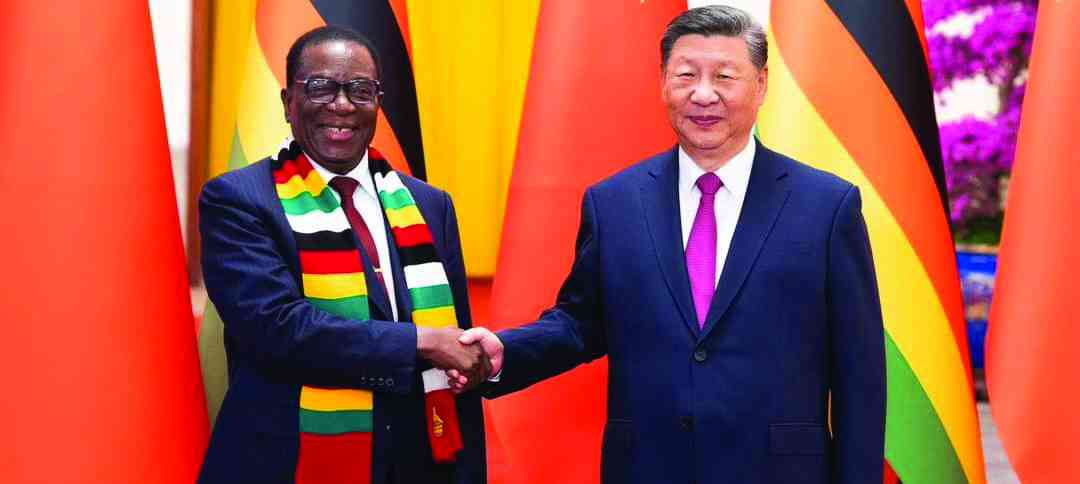
CHINA’S geopolitical ambitions and economic influence make it a major player in global politics and economics.
With a staggering GDP of US$18,5 trillion, a population of 1,4 billion, and foreign exchange reserves around US$4 trillion, China’s interactions with other nations carry immense weight.
This is particularly true for Africa, and the recent 2024 Summit of the Forum on China-Africa Cooperation (Focac) held in Beijing between September 4 and 6 provided a key opportunity to assess the evolving Sino-Africa relationship.
The summit, attended by President Emmerson Mnangagwa and 49 other African leaders, was centered on the theme Joining Hands to Advance Modernisation and Build a High-Level China-Africa Community with Shared Future.
What was most striking from this summit was the pledge by Chinese President Xi Jinping to release US$50 billion in financial support over the next three years.
This commitment includes more than half in credit, US$11 billion in various forms of assistance, and US$10 billion through encouraging Chinese investments in Africa.
While this funding appears promising, particularly for developing countries like Zimbabwe, the reliance on credit raises critical concerns.
China has already extended about US$170 billion in loans to developing nations, making it the world’s largest single creditor. Many African countries, including Zimbabwe, are now indebted to China, sparking debates about whether this creates a “debt trap”.
- Mr President, you missed the opportunity to be the veritable voice of conscience
- ED to commission new-look border post
- Zanu PF ready for congress
- EU slams Zim over delayed reforms
Keep Reading
While Beijing denies this, the ballooning debt raises legitimate concerns about repayment.
Zimbabwe, for instance, has benefited from Chinese funding in sectors such as travel through airports rehabilitation, energy, and mining.
However, the pressing question remains: can Zimbabwe and other African nations realistically repay these loans without mortgaging their natural resources to balance the books with Beijing?
The trade imbalance further complicates the relationship. Africa continues to export raw materials while importing finished goods from China, as evidenced by China’s US$64 billion trade surplus in 2023, with exports rising to US$173 billion.
That imbalance must be corrected to build equal Sino-Africa relations
While last week’s Focac was a summit where Beijing preached renewed friendship, cooperation and a good trading future, Jinping’s US$50 billion pledge has also triggered concerns about a new form of neo-colonialism.
For over a century, Africa was subjected to Western colonial exploitation, with vast resources lost to nations like Britain, Belgium, Portugal and France.
Today, questions have been raised on whether China may be following a similar path as it seeks critical minerals such as gold, diamonds, chrome, and lithium from Zimbabwe and other African countries.
There have already been troubling reports of exploitation by some Chinese companies operating in Africa, including low wages, poor working conditions, and environmental degradation.
The profits and minerals often flow back to China, leaving African communities with little to show for the extraction of their resources, except for a trail of environmental degradation.
Jinping’s Belt and Road Initiative requires stronger relations with Africa as China is benefitting from the continent’s natural resources.
While Africa and China share a long history of cooperation dating back to pre-independence times, particularly in Zimbabwe’s case, it is essential that the relationship is rooted in mutual respect and fairness.
African countries must avoid falling into the trap of mortgaging their resources, which should instead be preserved to benefit future generations.
The financial assistance from China is certainly welcome. However, African leaders must remain vigilant about the long-term implications of accumulating large amounts of debt.
Already struggling with poverty and economic challenges, many African countries cannot afford to carry additional financial burdens.
On the flip side, it is undeniable that China has contributed to infrastructure development in Zimbabwe, from roads to power projects.
But, the benefits of deals with Chinese companies, particularly in the mining sector, must extend beyond a privileged few and positively impact the broader population.
Hence, equal partnership is critical to ensuring that Sino-Africa relations are mutually beneficial.
Only through balanced and fair collaboration can Africa truly thrive alongside its powerful partner, China.






